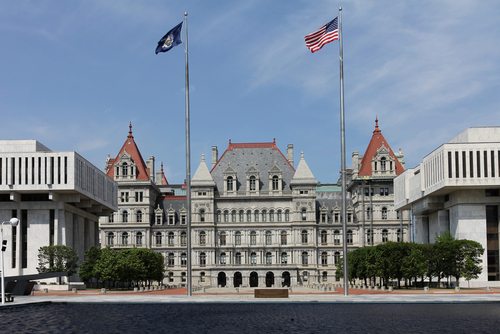
June 25, 2013; Buffalo Business First
The New York Legislature has passed a bipartisan overhaul of the laws governing nonprofits in the Empire State, and it appears to come with the participation and approval of some key leaders in the sector.
According to Tracy Drury’s article in Buffalo Business First, “the Nonprofit Revitalization Act reforms New York’s law governing the operation and governance of nonprofit charities, allowing them to incorporate, dissolve and merge more easily. But it also allows for oversight of governance, requiring stricter involvement by board members and more specific conflict of interest policies.”
In short, in exchange for more latitude in how they operate, New York’s nonprofits will be subject to stricter rules and regulations requiring greater accountability and transparency.
Sign up for our free newsletters
Subscribe to NPQ's newsletters to have our top stories delivered directly to your inbox.
By signing up, you agree to our privacy policy and terms of use, and to receive messages from NPQ and our partners.
The legislation was written by New York’s Attorney General, Eric Schneiderman, and was sponsored by an upstate Republican state senator and a Democratic assemblyman from New York City, arguably America’s largest nonprofit and philanthropic activity center. The bill passed unanimously and was the first major overhaul of the state’s charity laws in over 40 years.
It was widely praised by local nonprofit leaders interviewed by Buffalo Business First, and is an illustration of the importance of nonprofits engaging with political leaders so that regulatory programs are not imposed unilaterally on them by the government, but come as a result of a collaborative process that reflects our sector’s interests, as well as those of the general public.
The law’s proponents say it will allow nonprofit groups to communicate and hold meetings using modern technology—such as video conferencing—and transact certain kinds of business through electronic means, without having to go to court. But it also requires boards to perform stricter oversight of insider deals and to adopt more robust financial oversight requirements, as well as more comprehensive conflict-of-interest and whistleblower policies that protect employees.
The law addresses issues around executive compensation at nonprofits and facilitates greater financial assistance for struggling organizations. It contains both carrots and sticks, reflecting the fact that the state’s nonprofit community worked closely with the Attorney General and the legislature to draft the revisions.
Some estimate that New York’s nonprofits generate hundreds of billions of dollars in annual revenue, the highest of any state in the nation, and one that is responsible for one of every seven jobs in the state.—Larry Kaplan












